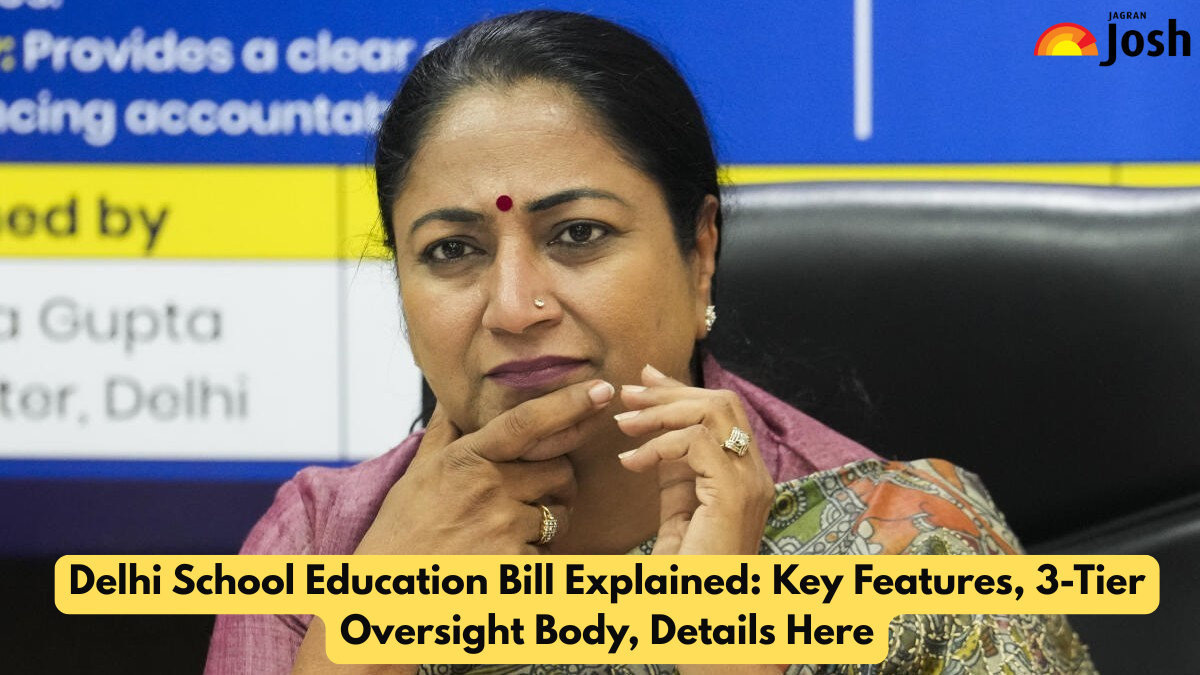The Delhi government's newly tabled Delhi School Education (Transparency in Fixation and Regulation of Fees) Bill, 2025, has sparked a heated debate.The law, which was introduced during the Monsoon Session, aims to control private school tuition and guarantee openness.
The administration asserts that the Act will reduce capricious fee increases and lower the cost of education, while others contend it has the opposite effect. They contend that the bill actually lessens the responsibility of private school administration while empowering them. A three-tiered regulatory framework for monitoring charge structures is described in the bill. To ascertain whether it actually addresses the commercialization of school education or if it fails to meet its declared objectives, a thorough examination of its provisions is required.
Key provisions of the bill
The following are the main points of the bill that students and other interested parties need to be aware of:
Annual fee hike cap
-
Only one fee increase per academic year is permitted by schools, and prior approval is required.
-
Before raising any charge component, a formal application needs to be sent to the regulatory body.
-
Financial Disclosures Audited Before recommending price increases, schools must provide audited financial accounts, expenditure reports, and information on infrastructure costs.
Refunds and rollbacks of fees
-
The bill contains clauses that allow for the repayment of excessive or unnecessary expenses. The Director of Education has the authority to order the rollback of increased fees in cases of noncompliance.
Fines and penalties
-
The maximum monetary penalty for non-compliance is ₹5 lakh.
-
In extreme circumstances, schools may lose their recognition.
-
System for addressing complaints
-
The fee committees are the direct source of complaints from parents and other interested parties.
Related Stories
The Controversy: Tokenism or Transparency?
-
The opposition, especially the Aam Aadmi Party (AAP), refers to the measure as a "sham" despite the government's claims that it guarantees accountability.
-
Atishi, the leader of the opposition, criticized the bill for not include clauses that would freeze or reverse the present fee increases.
-
letting schools lead their own fee committees, which raises questions about fairness.
-
being implemented after the start of the school year, allowing schools to hike tuition without supervision in the interim.
Will it Tackle Commercialisation?
What the Bill Attempts:
-
standardizing annual fee increases under governmental supervision.
-
Enforcing financial disclosures will increase openness.
-
establishing a grievance appellate framework, which was previously mainly absent.
Where it falls short:
-
Fee committees controlled by schools may reduce objectivity.
-
Retrospective oversight over fee increases already enacted this year is lacking.
-
There are no robust safeguards against students being expelled for failing to pay excessive fees.
-
Lacks clear caps on non-tuition fees, such as charges for activities or infrastructure.
Conclusion
An important attempt to formalize fee regulation in an area that is now mostly unregulated is the Delhi School Education (Transparency in Fixation and Regulation of Fees) Bill, 2025. Critics counter that it might simply provide procedural transparency, ignoring the more fundamental business interests that underpin the economics of private education.
The law might be more of a compliance exercise than a means of stopping educational profiteering unless provisions are strengthened to provide parents real authority and to shield fee regulation from school influence.
Also Read:
NEET UG 2025 Choice filling on Hold; Revised Counselling Schedule Release Shortly at mcc.nic.in
To stay updated on current trends, join the Jagran Josh Telegram Community!

Comments
All Comments (0)
Join the conversation